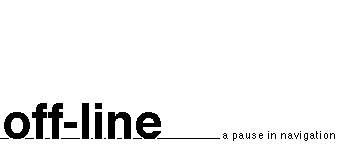The first part
of these considerations was about the fact that
more and more people are looking for “less and
better” – and there are interesting business
opportunities in understanding that attitude. But there’s more.
“Less is better” sounds almost the same, but it
has a different meaning. We can improve our lives and our
wellbeing by having less of all sorts of things. Of course
this isn’t about asceticism or extreme simplicity. It’s
about comfort, pleasure, ease and enjoyment.
We learnt many years ago that “less is better”
is some areas of our behavior. Such as food and drink. We
know that healthy food can be also pleasant, that a glass of
good wine is good for us but alcoholism is a disease, etcetera.
This is quite obvious in the case of the environment,
where many of the most effective solutions are based on the
“less is better” concept.
But there are many other ways in which we need to
understand how and when “less is better”. In all
things there is a limit to abundance. There is a point where
“enough is enough”. More of the same, or more of
whatever, isn’t just unnecessary. It can be positively unpleasant.
Of course individual perceptions and desires can vary.
People can choose to have as much clutter as they want – as
long as it doesn’t get in the way of other people, or the
environment. But we are beginning to understand that free
space is more pleasant (and easier to manage) than a cumbersome
invasion of stuff that we don’t really want or like.
There is a great deal of clutter that we need to
eliminate or control. One of the most obvious, and worrying,
examples is technology. Its very easy to make things more
complex. The result is that they don’t work – or we have to
waste too much time and effort to make them work as we wish.
Another problem is that we are becoming too dependent on
technologies. We are un-learning how to do things, delegating
to machines and devices that we don’t understand and that we
don’t know how to fix when they break down or malfunction.
It’s quite comfortable to have machines that free us from
boring chores. But if we delegate too much to automatic
devices, or other equipment that we don’t control, we can be
in very serious trouble whenever one of them doesn’t work
properly. The more of those we have, and with greater complexity,
the higher is the probability that something will go wrong.
We are already beyond the threshold of reliability or sanity.
There is a strong and urgent need to simplify technologies,
to make them more reliable, straightforward and manageable.
There are, of course, many situations in which “less
is better” isn’t just a personal choice, but a
collective need. Some are obvious, such as the environment.
But there are many more. Social responsibility often requires
producing or doing less of what gets in the way of other people.
We may be tempted to think that this applies only to
“affluent” societies – while in the case of poverty
and lack of basic resources it is universally true that
“more is better.” But this isn’t so. Also in
“developing” situations the best solutions are
those that don’t go for “more of whatever” –
or stupidly imitate the worst mistakes of industrialized
countries. In every evolution, at every stage, it’s better to
avoid waste, unnecessary strain, undesirable complications.
Simple solutions, based on local resources and abilities, are
often the most effective.
In the “affluent” economies consumption is
down. This is due to perplexities about the political and
economic situations. But there is more than a temporary phase
of concern.
It remains to be seen how a long-term understanding that
“less is better” will influence behavior over time.
But it may be wise, and rewarding, to work now on business
strategies designed to cater for those needs.
See also part one – Less and better



